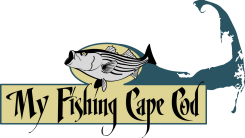
Steve Leary
Charter captain & MFCC member
As I prepare Wingman for another charter season, my primary focus is on safety as it relates to the overall condition of safety gear, hull, propulsion, electronic and fuel systems.
I am a firm believer in preventive maintenance, and would like to share some of my tips.
My mate and I are in the process of completing a bow to stern, top to bottom inspection of Wingman. Every raw and fresh water, fuel and oil interface (connections, clamps and hoses) are inspected and replaced if corrosion, deterioration or damage is found.
The same applies to the electric system where corroded or loose conections or chafed wires can lead to system anomalies or become a potential fire hazard.
More...
Relative to the safety gear, we check for damage to personal flotation devices, expiration dates on fire extinguishers and visual distress signals, and operation of sound signaling devices.
Although time consuming, adopting and implementing such an approach aligns itself well with improved overall safety for all aboard should an event occur, and increased reliability resulting in more trouble-free time on the water.
Always Be Prepared

Most folks have read about or witnessed boating incidents such as a collision, sinking/capsizing, man over board or fire. Many have the mindset “that will never happen to me” - wrong!
It can and has happened to the most experienced recreational boaters and professional captains!
No matter how many years you have spent on the water, each time underway presents its own unique challenges and conditions. We all need to insure we are prepared!

Recommended Service 
USCG Vessel Safety Standards
The U.S. Coast Guard and Massachusetts Environmental Police have established specific requirements defining vessel safety standards.
These standards include personal flotation devices, navigation lights, fire extinguishers, visual distress signals, sound producing devices and more.

The required equipment checklist used during vessel safety checks is provided at the end of this post.
A complete guide of Massachusetts boating laws and responsibilities including this checklist is available on the Massachusetts Environmental Police website @ www.mass.gov/ole. For federal boating laws, visit the U.S. Coast Guard’s boating safety website @ www.uscgboating.org/.
It’s important to insure you are in compliance with the requirements for your vessel and area of operation. Should you be boarded by the Coast Guard or Environmental Police and fail a vessel safety check, fines may result.
Wingman’s home port is Barnstable Harbor, and we primarily operate within Cape Cod Bay. Given the proximity of our area of operation to the Coast Guard stations at the canal and Provincetown, I am typically boarded at least twice a season by Coast Guard vessels on patrol or conducting crew training exercises.
Courtesy Vessel Checks
The way I ensure Wingman is in compliance is to request a courtesy vessel safety check before each season. These vessel checks are conducted by the Coast Guard auxiliary, are free and won’t result in a fine should a violation be found.
A follow-on inspection is scheduled to insure you have corrected the violation. When the vessel check is passed you receive a decal to display, indicating your vessel is compliant.

Then typically, as the Coast Guard or Environmental Police approach your vessel on the water and see this decal, they will give you a wave and be on their way. A courtesy vessel check can be requested by contacting your local Coast Guard auxiliary or via the Coast Guard auxiliary website @ www.cgaux.org/.
Required Equipment Checklist
To print this checklist, you can click here.

Please refer to the Massachusetts Environmental Police website @ www.mass.gov/ole for the guide to boating laws and responsibilities and the required equipment checklist established for powered vessel lengths and non-motorized vessels.
For federal boating laws, visit the u.s. coast guard’s boating safety website @ www.uscgboating.org.
Extra Safety Tips
Charter Boats are required to carry Type I PFDs for all on board. We mark our vessel’s name, and attach whistles and LED or cyalume light sticks to each PFD.
Having a light on your PFD greatly increases the ability for Search and Rescue (SAR) responders to locate you after dark. In addition, we also mark anything the floats with the vessel’s name such as life rings, first aid kits, coolers , cushions etc.
We do this based on a recommendation from the US Coast Guard safety office. In the event a vessel goes down, any floating debris the search and rescue folks find and can tie to your vessel, helps them determine the location of survivors.
In Conclusion
I hope that you’ve found the information provided helpful. Implementing a safety based, preventative maintenance plan will increase trouble free time on the water and enhance the safety of those aboard should a situation arise.
Please feel free to contact me with any questions or comments by sending me an email at [email protected], hitting me up in the MFCC forum and Wingman Sportfishing on Facebook, or by simply commenting below.
Fair Seas and Tight Lines!


Thank you Steve. My first trip was a dead battery. Will absolutely use your checklist.
Thanks for this timely article. If you can stop just one mishap from occurring, this will be a success. I also thank you for mentioning the free vessel safety check provided by the Coast Guard Auxiliary. It doesn’t take long, and it is always better to have an experienced set of eyes go over your vessel, it’s very easy to overlook a small detail, or to just assume things are working. Good luck and tight lines!
Nice Safety tips!
Great tips and article. Thanks. I will be using the checklist before I head out again.